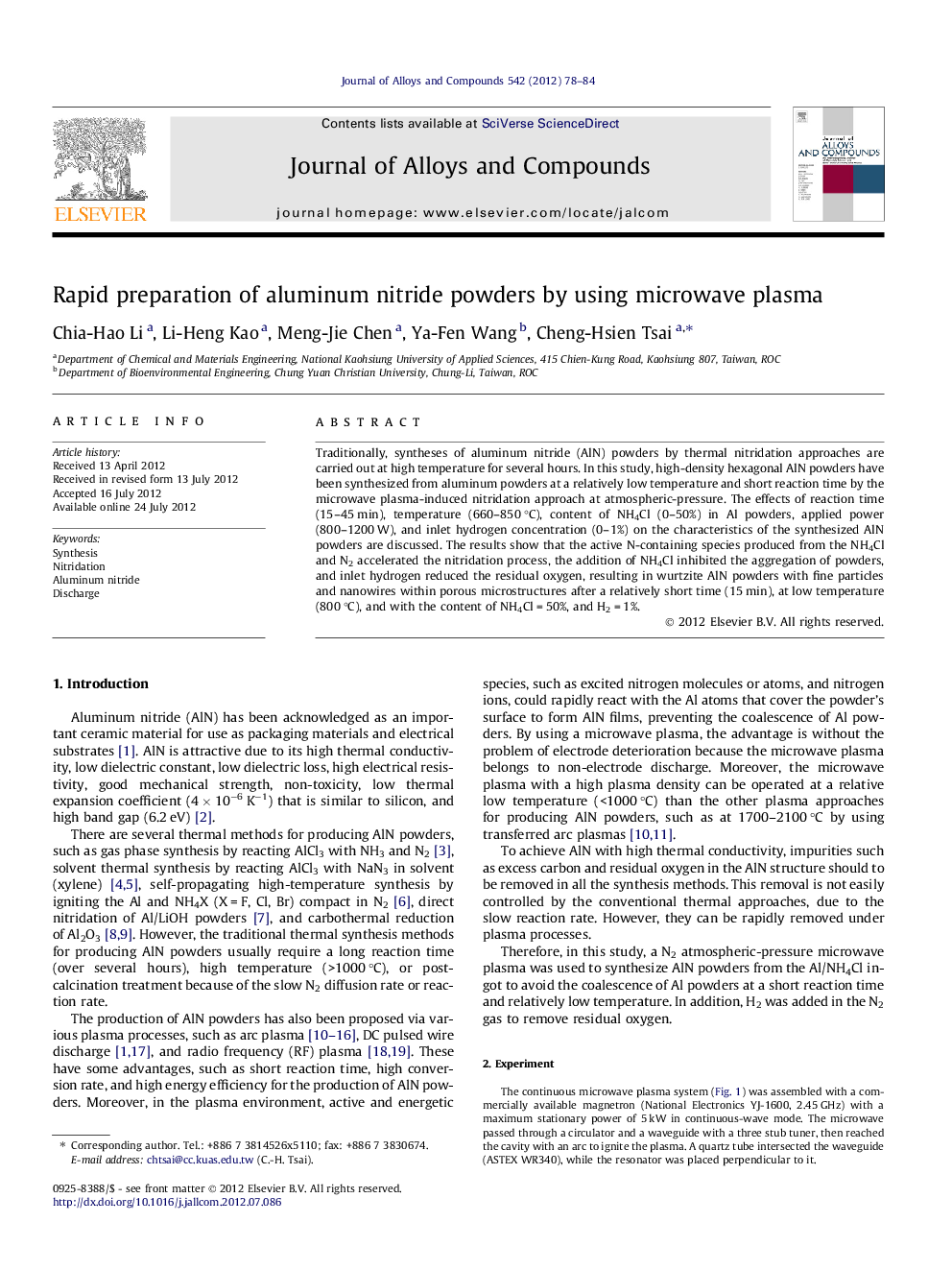| Article ID | Journal | Published Year | Pages | File Type |
|---|---|---|---|---|
| 1615327 | Journal of Alloys and Compounds | 2012 | 7 Pages |
Traditionally, syntheses of aluminum nitride (AlN) powders by thermal nitridation approaches are carried out at high temperature for several hours. In this study, high-density hexagonal AlN powders have been synthesized from aluminum powders at a relatively low temperature and short reaction time by the microwave plasma-induced nitridation approach at atmospheric-pressure. The effects of reaction time (15–45 min), temperature (660–850 °C), content of NH4Cl (0–50%) in Al powders, applied power (800–1200 W), and inlet hydrogen concentration (0–1%) on the characteristics of the synthesized AlN powders are discussed. The results show that the active N-containing species produced from the NH4Cl and N2 accelerated the nitridation process, the addition of NH4Cl inhibited the aggregation of powders, and inlet hydrogen reduced the residual oxygen, resulting in wurtzite AlN powders with fine particles and nanowires within porous microstructures after a relatively short time (15 min), at low temperature (800 °C), and with the content of NH4Cl = 50%, and H2 = 1%.
► AlN powders were synthesized from Al powders in short reaction time (15 min). ► AlN powders were produced from Al at a relative low temperature (800 °C). ► N-containing species produced by MW plasma accelerated the nitridation process. ► The addition of NH4Cl inhibited the aggregation of Al and produced nanowires. ► The addition of H2 reduced the residual oxygen and increased the yield of AlN.
